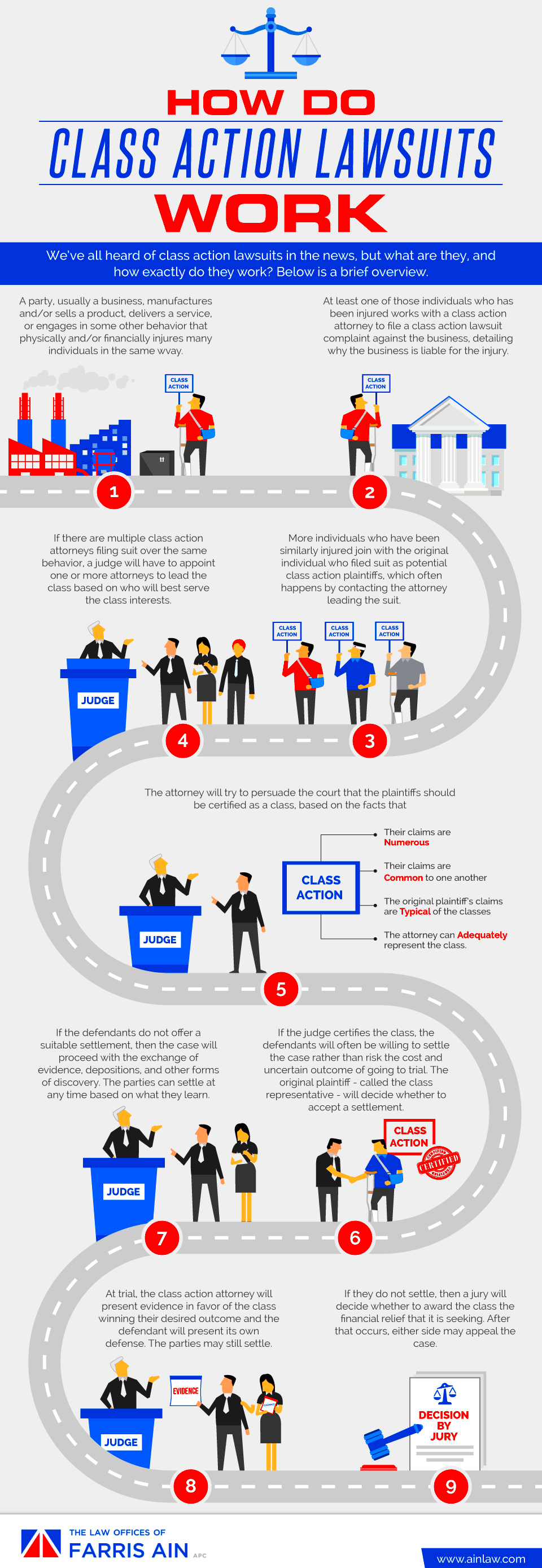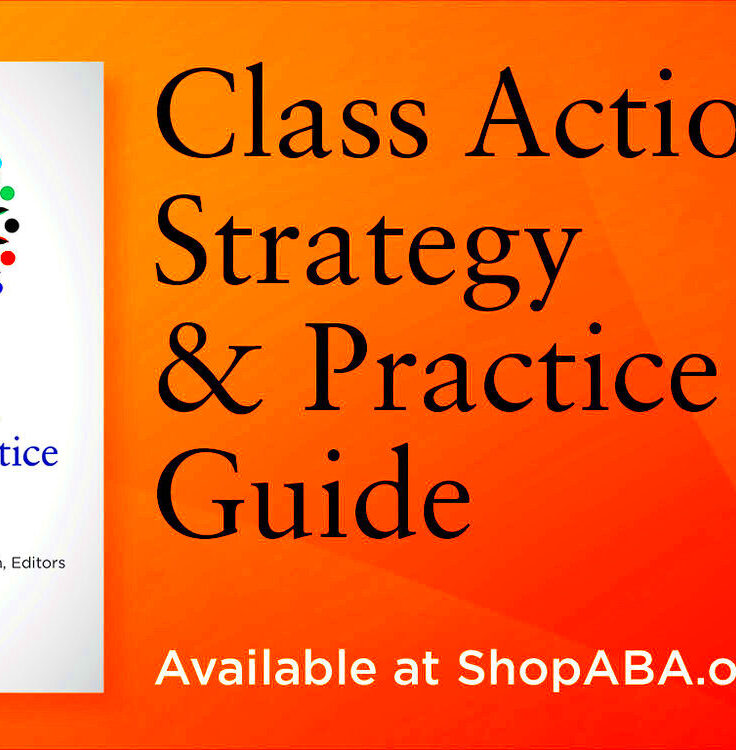How to Navigate a Class Action Law Forum
Class action lawsuits are a unique way for individuals to come together to seek justice. Instead of filing individual lawsuits, a group of people with similar claims against a defendant can combine their cases into one. This approach is often used when the claims are too small for individuals to pursue alone, making it a powerful tool for those facing common issues, such as defective products, misleading advertising, or environmental harm.
By banding together, the plaintiffs can share legal costs and increase their chances of success. Class actions also help to ensure that companies are held accountable for their actions and can prevent future harm. It’s important to note that class action lawsuits can take time and may involve complex legal processes, but they can lead to significant outcomes for the group involved.
Key Features of Class Action Law Forums

Class action law forums have some distinct characteristics that set them apart from regular lawsuits. Here are a few key features:
- Group Representation: A class representative is chosen to represent the interests of the entire group.
- Commonality of Claims: All members of the class must have similar legal issues against the defendant.
- Judicial Efficiency: Combining cases helps to reduce the court’s workload and saves time and resources.
- Potential for Larger Settlements: The collective nature of the lawsuit can lead to larger settlements or judgments.
- Notice Requirements: The court typically requires that all class members are notified of the lawsuit and their rights.
Understanding these features can help individuals navigate the complexities of class action law forums effectively.
Steps to Join a Class Action Lawsuit
If you believe you have a claim that may qualify for a class action lawsuit, here are the steps you can take to join:
- Research Ongoing Cases: Look for existing class action lawsuits related to your issue. You can search online or consult legal resources.
- Consult with an Attorney: Speak with a lawyer who specializes in class action suits. They can provide guidance and help determine if you have a valid claim.
- Review the Class Definition: Ensure your situation falls within the definition of the class. This is crucial for your participation.
- Fill Out Necessary Forms: If you decide to join, you may need to complete forms to formally register as a class member.
- Stay Informed: Keep track of the lawsuit’s progress and any required actions from your side, such as attending court hearings or responding to notices.
Joining a class action lawsuit can be an effective way to pursue justice, but it’s essential to stay informed and actively participate throughout the process.
Important Legal Terminology
When navigating a class action lawsuit, it’s essential to understand some key legal terms. These terms can often feel confusing, but knowing them can help you follow the process more clearly. Here are some important terms to get familiar with:
- Class: A group of individuals with similar legal claims against the same defendant.
- Class Representative: The individual chosen to represent the interests of the entire class in the lawsuit.
- Defendant: The party being accused in the lawsuit.
- Certification: The court’s approval that allows the lawsuit to proceed as a class action.
- Settlement: An agreement reached between the parties to resolve the lawsuit, often involving compensation for class members.
- Opt-out: The choice made by a class member to exclude themselves from the class action, usually to pursue their own lawsuit.
Understanding these terms can make it easier to communicate with your attorney and participate effectively in the lawsuit. If you encounter any unfamiliar words, don’t hesitate to ask for clarification—it’s crucial to feel informed about the process!
Choosing the Right Class Action Law Forum
Selecting the right class action law forum can significantly impact your case. Here are some factors to consider when making your choice:
- Jurisdiction: Ensure the forum has the authority to hear your case based on where the events occurred or where the defendant is located.
- Reputation: Look for forums known for handling class action lawsuits effectively. Research past cases and outcomes.
- Accessibility: Consider how easy it is for you to participate in the proceedings. Some forums may offer more remote options than others.
- Expertise: Check if the forum has judges or legal staff experienced in class action lawsuits. Their knowledge can affect your case’s outcome.
Choosing the right forum involves careful consideration, so take your time to research your options. Consulting with an attorney can also provide valuable insights and help you make an informed decision.
Preparing for Your Participation
Once you’ve decided to join a class action lawsuit, it’s essential to prepare for your participation. Here are some steps you can take to ensure you’re ready:
- Gather Documentation: Collect any evidence related to your claim, such as receipts, emails, or photographs that support your case.
- Stay Informed: Keep up with the progress of the lawsuit and any updates from your attorney or the class representative.
- Understand Your Role: Know what is expected of you as a class member, including attending meetings or providing additional information if requested.
- Communicate with Your Attorney: Regularly check in with your lawyer for updates and to discuss any concerns you might have.
- Be Patient: Class action lawsuits can take time. Prepare yourself for a potentially lengthy process and stay committed to your involvement.
By taking these steps, you can ensure that you are well-prepared and informed as you participate in the class action lawsuit. Your involvement is crucial in seeking justice not just for yourself, but for the entire class.
Common Challenges in Class Action Lawsuits
Class action lawsuits can be a powerful way for individuals to seek justice, but they also come with their own set of challenges. Here are some common issues you might encounter:
- Complexity: Class actions often involve intricate legal processes and rules that can be hard to navigate. Understanding these complexities is crucial.
- Lengthy Process: These lawsuits can take a long time to resolve. It’s not unusual for cases to take years before reaching a conclusion.
- Proving Commonality: One of the biggest hurdles is proving that all class members share similar claims. If the court doesn’t see this commonality, the case may not be certified as a class action.
- Settlement Issues: Reaching a settlement that satisfies everyone can be difficult. Some class members might feel the compensation isn’t enough, leading to dissatisfaction.
- Communication Challenges: Keeping all class members informed can be tough, especially if the class is large. Some may not receive timely updates about the case.
While these challenges can be daunting, staying informed and engaged can help you navigate the process more smoothly. Working closely with your attorney is vital for overcoming these hurdles and ensuring your voice is heard.
Frequently Asked Questions
Many individuals have questions about class action lawsuits. Here are some common queries:
- What is a class action lawsuit? A class action lawsuit is a legal proceeding where a group of individuals collectively brings a claim against a defendant.
- How do I know if I qualify for a class action? Generally, you qualify if you have similar claims against the same defendant as other class members.
- Can I opt out of a class action lawsuit? Yes, you can choose to opt out if you wish to pursue your own separate lawsuit instead.
- Will I have to go to court? It depends on the case. Many class actions are settled out of court, but some may go to trial.
- How are settlements distributed? Settlements are usually distributed according to the terms set by the court, often based on the extent of damages suffered by class members.
If you have further questions, don’t hesitate to reach out to your attorney for clarification. They can provide detailed information based on your specific situation.
Conclusion
Class action lawsuits offer a unique way for individuals to come together and seek justice against larger entities. While the process can be complex and challenging, understanding the key components can empower you as a participant. From learning essential legal terminology to navigating the steps to join a lawsuit, each aspect plays a vital role in your journey.
By staying informed, choosing the right forum, and preparing thoroughly, you can effectively navigate the challenges that come with class actions. Remember, the collective strength of the class can lead to significant change and accountability, making your participation crucial. Stay engaged, keep communication open with your legal team, and take comfort in knowing you’re not alone in this process.


